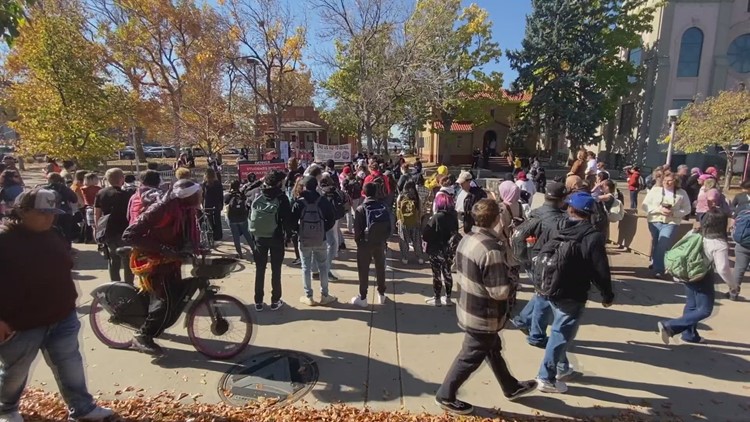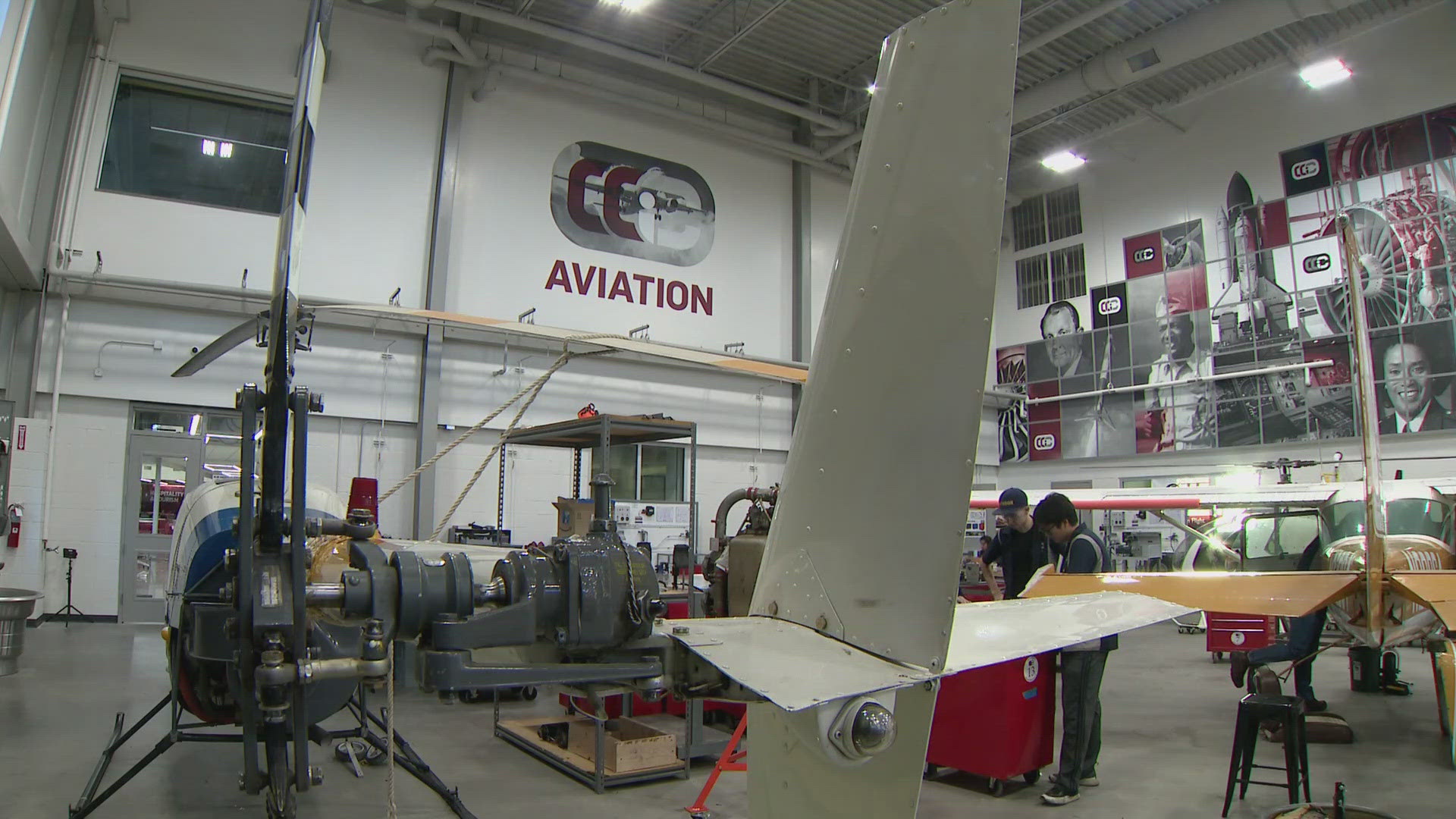DENVER — After the recent protests and counterprotests over the Hamas-Israel war that have swept America’s campuses, as well as the firings of the presidents of Harvard and Penn in part over their handling of those protests, it’s fair to ask whether or not we can even engage in civil discourse on vital topics on our campuses anymore.
The answer: We must.
“Freedom of speech can be a way of expressing frustrations and anger and rage,” said Dr. Micheline Ishay, professor of International Studies and Human Rights and director of the Center of Middle East Studies, Josef Korbel School, University of Denver. “Academic settings are different environments where we have to talk more critically and engage more responsibly. A level of sobriety is always important in those venues.”
Ishay plans to very much practice what she professes from 5 to 7:30 p.m. Jan. 17 at Maglione Hall on the University of Denver campus, when she will moderate a debate on the Israel-Hamas War, 100 days after it started.
Her panel will include experts in Judaic studies, Arab studies, history, war, culture and human rights. Her panel will include Jews, Muslims and Christians. The Denver Gazette, Colorado Politics and 9NEWS will partner with DU on the panel discussion and livestream it on their websites as part of the Gazette's Colorado Conversations series.
We’re partnering with Dr. Ishay because we also think this is an important, overdue conversation, and that it is important we demonstrate on our Colorado campuses and on our news sites that we can still very much engage in multi-sided conversations on such subjects, convening disparate points of view.
“It’s important on many levels, first because political discourse has really eroded on many campuses in the United States,” Ishay told me. “People no longer know how to have robust conversations. We’d like to model and showcase how to have critical engagements in the spirit of civil discourse.”
“We need it not just on campuses, we need it across the board. We need it in our communities,” Ishay added. We are in "a period of crisis and we need a lot of reflection as to how we overcome it. Not just in the Middle East, but in the United States."
Unfortunately, on campuses around the country of late, academic freedom of speech and critical thinking have not always aligned. But that doesn’t mean we should give up on academic debate altogether, or censor troublesome views.
“We’re going to try to counter the extreme sentiments you see around us," Ishay vowed. "We’re going to engage each other. We’re not going to just dismiss each other.”
Ishy’s panelists include:
- Dr. Ahmed AbdRabou, assistant teaching professor, Josef Korbel School, University of Denver.
- Dr. Jonathan Sciarcon, associate professor, Department of History and Judaic Studies, University of Denver
- Gary Grappo, former U.S. ambassador in the Middle East and distinguished fellow of the Center for Middle East Studies, Josef Korbel School, University of Denver
- Dr Karim Matter, associate professor, Department of English, University of Colorado, Boulder.
Students, leaders from the community, scholars, and people who are internationally interested will be in attendance.
Refreshments will be served during the conversation, which will be livestreamed and available at denvergazette.com, coloradopolitics.com and 9news.com.
You can register for the live event at denvergazette.com/war.
If you’d like to submit a question for panelists head of time, please send it to Rudy Vasquez at rudy.vasquez@gazette.com.
The panelists will also reserve time for questions from the live audience.
In my humble view, it is not the business of great universities to take sides in America’s culture wars, whether it concerns George Floyd or Israelis and Palestinians. But universities should absolutely be venues for free debate and deliberation on these issues.
My model for this is the University of Chicago, which in 1967, put forward the Kalven principles outlining an ideal of the university as a neutral venue for free inquiry. What I love about these principles is that they encourage and facilitate battles of ideas, but argue that the only way to ensure a fair fight among those ideas is for the university to never take a collective stand itself.
“A university has a great and unique role to play in fostering the development of social and political values in a society," read the principles. "By design and by effect, it is the institution which creates discontent with the existing social arrangements and proposes new ones. In brief, a good university, like Socrates, will be upsetting.”
But here’s the real beauty of Chicago’s principles to me:
“The university is the home and sponsor of critics; it is not itself the critic … To perform its mission in the society, a university must sustain an extraordinary environment of freedom of inquiry and maintain an independence from political fashions, passions, and pressures. A university, if it is to be true to its faith in intellectual inquiry, must embrace, be hospitable to, and encourage the widest diversity of views within its own community.
“It cannot insist that all of its members favor a given view of social policy; if it takes collective action, therefore, it does so at the price of censuring any minority who do not agree with the view adopted.”
But that doesn’t mean the university should in any way shy away from tackling the biggest issues of the day, like the Israel-Hamas war.
“The neutrality of the university as an institution arises then not from a lack of courage nor out of indifference and insensitivity. It arises out of respect for free inquiry and the obligation to cherish a diversity of viewpoints. … It finds its complement, too, in the obligation of the university to provide a forum for the most searching and candid discussion of public issues.”
Like DU's Jan. 17 forum.
After reading the Kalven principles in full, I found myself wishing I could get Israelis and Palestinians to follow a bit of their wise counsel when and if they conduct talks with each other.
Interestingly, Ishay tells me that just as the panelists will be focused on positive engagement on Jan. 17, much of the content of the conversation will focus on how Israelis and Palestinians might engage more productively once the war is over. Can this present conflict be an opportunity for progress?
“We will talk not just about the war and how it is waged, and what is justified and not justified, but also the possibility to move beyond the current crisis,” Ishay told me.
The Israeli-Arab conflict is marked with many turning points when history failed to turn. The Oslo Agreements, Camp David II, The Abraham Accords, for example. Today’s conflict holds within it the opportunity for another turning point toward peace.
“Today we are facing a major crisis that is engulfing world attention again,” Ishay said. “It is important to think about how that crisis could be a turning point. We are going to see if we can try to contribute to that conversation.”
More 9NEWS coverage of the Hamas-Israel conflict:
SUGGESTED VIDEOS: Latest from 9NEWS
9NEWS+ has multiple live daily shows including 9NEWS Mornings, Next with Kyle Clark and 9NEWS+ Daily, an original streaming program. 9NEWS+ is where you can watch live breaking news, weather updates, and press conferences. You can also replay recent newscasts and find videos on demand of our top stories, local politics, investigations and Colorado specific features.
To download 9NEWS+ on Roku search for KUSA.
To download 9NEWS+ on Fire TV search for 9NEWS.



